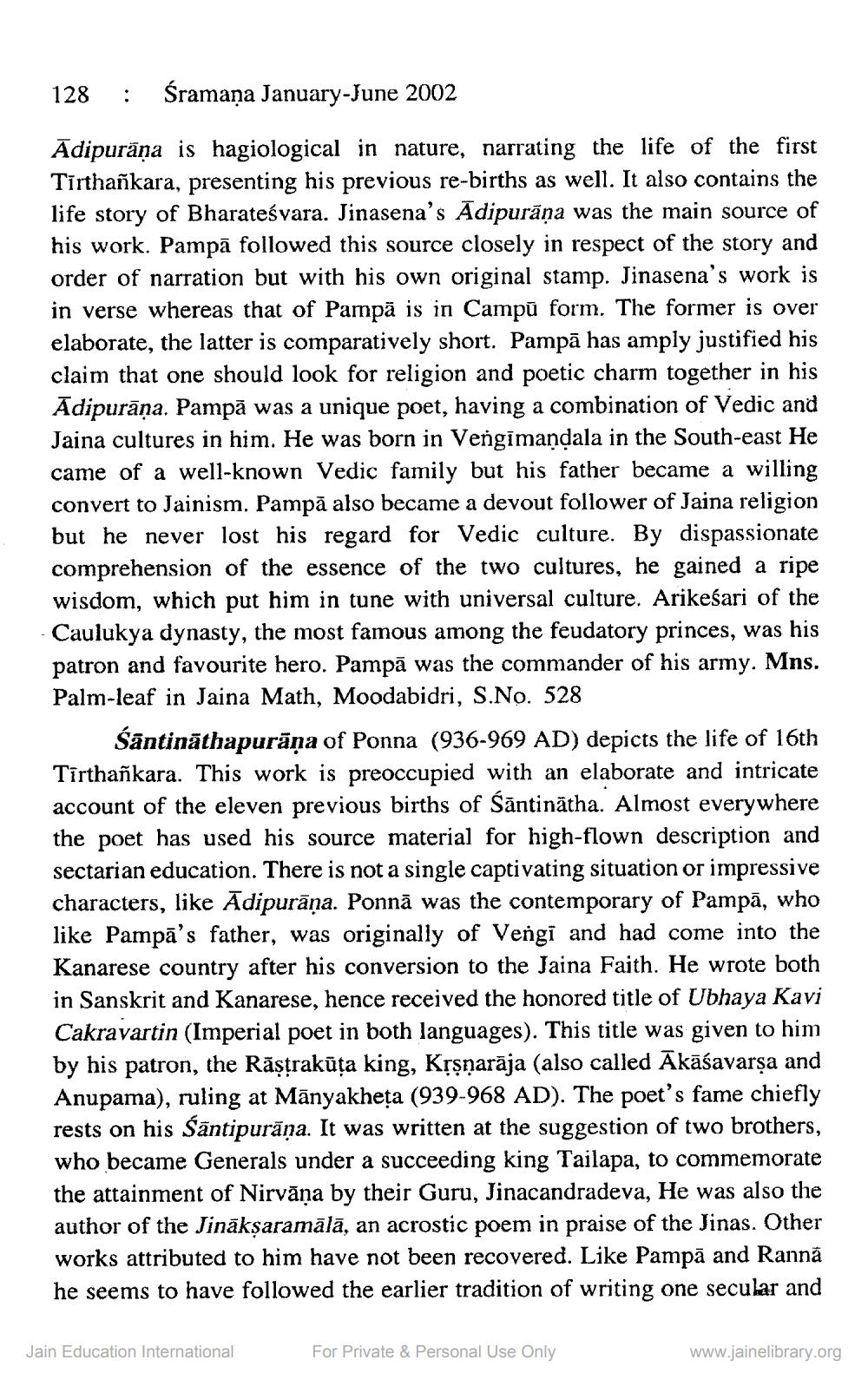________________
128
:
śramana January-June 2002
Adipurāna is hagiological in nature, narrating the life of the first Tīrthañkara, presenting his previous re-births as well. It also contains the life story of Bharateśvara. Jinasena's Adipurāņa was the main source of his work. Pampā followed this source closely in respect of the story and order of narration but with his own original stamp. Jinasena's work is in verse whereas that of Pampā is in Campū form. The former is over elaborate, the latter is comparatively short. Pampā has amply justified his claim that one should look for religion and poetic charm together in his Adipurāņa. Pampā was a unique poet, having a combination of Vedic and Jaina cultures in him. He was born in Vengimandala in the South-east He came of a well-known Vedic family but his father became a willing convert to Jainism. Pampā also became a devout follower of Jaina religion but he never lost his regard for Vedic culture. By dispassionate comprehension of the essence of the two cultures, he gained a ripe wisdom, which put him in tune with universal culture. Arikeśari of the Caulukya dynasty, the most famous among the feudatory princes, was his patron and favourite hero. Pampā was the commander of his army. Mns. Palm-leaf in Jaina Math, Moodabidri, S.No. 528
śāntināthapurāna of Ponna (936-969 AD) depicts the life of 16th Tīrthañkara. This work is preoccupied with an elaborate and intricate account of the eleven previous births of śāntinātha. Almost everywhere the poet has used his source material for high-flown description and sectarian education. There is not a single captivating situation or impressive characters, like Adipurāņa. Ponnā was the contemporary of Pampā, who like Pampā's father, was originally of Vengi and had come into the Kanarese country after his conversion to the Jaina Faith. He wrote both in Sanskrit and Kanarese, hence received the honored title of Ubhaya Kavi Cakravartin (Imperial poet in both languages). This title was given to him by his patron, the Răstrakūța king, Krşņarāja (also called Ākāśavarşa and Anupama), ruling at Mānyakheța (939-968 AD). The poet's fame chiefly rests on his Šāntipurāņa. It was written at the suggestion of two brothers, who became Generals under a succeeding king Tailapa, to commemorate the attainment of Nirvāņa by their Guru, Jinacandradeva, He was also the author of the Jinākṣaramālā, an acrostic poem in praise of the Jinas. Other works attributed to him have not been recovered. Like Pampā and Rannā he seems to have followed the earlier tradition of writing one secular and
Jain Education International
For Private & Personal Use Only
www.jainelibrary.org




